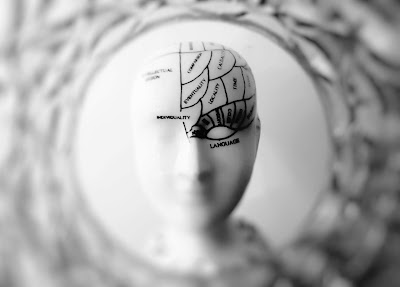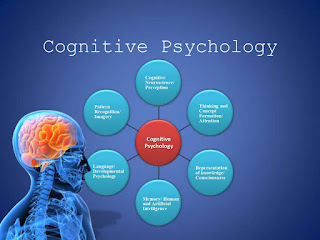COGNITIVE PSYCHOLOGY:-
COGNITIVE PSYCHOLOGY:-
“Mind and world … have evolved together, and in consequence are something of a mutual fit”.
– William James
INTRODUCTION:-
Cognitive psychology is the study of mental processes such as perceiving, remembering, and reasoning. Why do psychologists study mental processes?
Since the beginning of recorded history, people have expressed curiosity about the operation of the mind, largely because they believed that behaviour is the result of mental processes. For example, how are we to understand the very behaviour in which you are engaged at this moment, reading this course book?
At one level, we are interested in explaining your ability to comprehend what you are reading, and in so doing, we are likely to appeal to processes of perception of words and computation of meaning. At another level, we might explain your motivation for reading in terms of your goal to complete this course, which in turn is motivated by your goal of obtaining a degree in order to follow some plan that you have for a career. The point is that your behavior of reading this blog is determined in part by your intent to meet some goal and fulfill some plan.
Intentionality, goals, and plans are mental phenomena that affect behaviour. Further, the specific behaviour, in this case, reading, is understood by appeal to the specific mental processes involved in perception and comprehension of text.
In short, the study of mental processes is important because these processes are responsible for much of our behaviours. In this unit you will be studying the definition and description of cognitive psychology, distinctive research methods, domains of cognitive psychology, metaphor of cognition etc.
COGNITIVE PSYCHOLOGY: AN INTRODUCTION:-
Cognitive psychology is the study of how people perceive, learn, remember and think about information. A cognitive psychologist might study how people perceive various shapes, why they remember some facts but forget others, or how they learn language. Consider some examples of everyday experiences that are also of theoretical interest to cognitive psychologists:
How many times have you carefully proofread written work, only to be embarrassed later by an obvious error you overlooked?
Many times what we see is determined as much by the context in which it occurs as by what is actually there, an issue of pattern recognition.
Have you noticed the difficulty of simultaneously taking notes in class and understanding a lecture?
Explanations of this kind of difficulties are found in the discussion of attention. When you dial the telephone directory assistance for a telephone number and do not have a pen to note it down, why do you have to repeat the number until you have dialed it? And why you have to make your call again to enquire the number if someone talks to you before you dial the number?
These are problems associated with the short term memory.
Do you remember the experience of working on a problem or a puzzle that you were unable to solve, but after taking a break from the problem, you subsequently obtained a solution?
This phenomenon, known as incubation effect, along with other commonly experienced events is an aspect of problem solving.
Why do objects look farther away on foggy days than they really are? This discrepancy of perception can be dangerous, even deceiving drivers into having accidents.
These are just a few of the many examples of everyday experiences which are discussed and explored by the experiments and theory of cognitive psychology.
Two points about these examples should be considered as we attempt to gain an overview of cognitive psychology are:-
1) All represent instances of difficulty or failure of mental processes. We rarely think of them unless they fail to work. Failure of mental processes are immediately noticed because they can be frustrating, embarrassing, and sometimes even dangerous and consequently, such failures become useful tools for the psychological analysis of mental phenomena.
2) Cognitive psychology is interested in what is generally called mental phenomena. In this sense, the examples just discussed are consistent with the dictionary definition of cognitive psychology: “the scientific study of the mind”.
While it is hoped that examples help clarify the definition, questions undoubtedly remain concerning how one goes about this ‘scientific study of mind’. To address these questions, here is a brief discussion of the scientific methods, followed by an extensive description of the important historical events leading up to modern cognitive psychology.
Next is a brief overview of the major methods, issues, and content areas of cognitive psychology which will comes shortly in my next blog. So please comment, share and subscribe for further study of Cognitive Psychology.


Comments
Post a Comment
If you have any doubts,Please let me know.